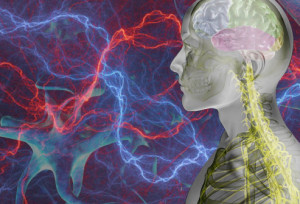Experiencing Cancer Pain
 According to experts, 1 out of 3 cancer patients experience pain from their cancer. This pain can either come from the original cancer site, or it can come from secondary sites to which the cancer has spread. The pain can be caused from the cancer itself, or it can actually be caused by the method used for treating it, such as chemotherapy, radiation, or surgery.
According to experts, 1 out of 3 cancer patients experience pain from their cancer. This pain can either come from the original cancer site, or it can come from secondary sites to which the cancer has spread. The pain can be caused from the cancer itself, or it can actually be caused by the method used for treating it, such as chemotherapy, radiation, or surgery.
There is Help
If you happen to be in the 1/3 of cancer patients that experience pain, there are ways to alleviate this pain. If you are experiencing pain from cancer, you need to speak with your healthcare provider to determine which options are best for you. You don’t have to suffer from pain associated with cancer when you can manage that pain.
Medication
There are several different types of medications that are used for managing cancer pain. Your doctor will suggest a certain type of medication based upon how severe your pain is. To determine this, the doctor will ask you to describe your pain and rate it on a scale of 1-10. Based on this information, your doctor will prescribe pain medication.
 For low level pain, your healthcare provider may suggest over-the-counter pain relief such as acetaminophen, aspirin, or ibuprofen. If OTC pain relief doesn’t alleviate the pain, your doctor may prescribe opioids such as codeine. Often, codeine is combined with other medications to increase its effectiveness. The most common of these is cocodamol, which pairs 30mg of codeine with 500mg of paracetamol. This painkiller cocodamol 30/500 requires a prescription although you can buy cocodamol 30/500 in the UK with no prescription at some sites which have their own doctor service. For more intense pain, your doctor may want to prescribe a heavier opioid like morphine, fentanyl, methadone, or ocycodone. These medications can be taken orally, rectally, intravenously, or transdermally.
For low level pain, your healthcare provider may suggest over-the-counter pain relief such as acetaminophen, aspirin, or ibuprofen. If OTC pain relief doesn’t alleviate the pain, your doctor may prescribe opioids such as codeine. Often, codeine is combined with other medications to increase its effectiveness. The most common of these is cocodamol, which pairs 30mg of codeine with 500mg of paracetamol. This painkiller cocodamol 30/500 requires a prescription although you can buy cocodamol 30/500 in the UK with no prescription at some sites which have their own doctor service. For more intense pain, your doctor may want to prescribe a heavier opioid like morphine, fentanyl, methadone, or ocycodone. These medications can be taken orally, rectally, intravenously, or transdermally.
Speak Up
If you’re experiencing pain from cancer, it’s important that you share this with your doctor. Because of the small percentage of cancer patients who experience pain, many doctors do not ask if you’re experiencing pain. It’s up to you to bring up pain. Take control of your treatment, and don’t leave it up to the doctor. It’s your body, and pain management is your choice.
Not Wanting to Rely on Pain Medication?
For some people, the thought of taking strong pain medication makes them leery of approaching the subject. For some, it’s the fear of becoming addicted. For others, they might fear adverse side effects.
Pain Medication and Addiction
Proper pain management addresses these issues. First of all, taking pain medication only when you’re in pain helps to address the risk of addiction. Also, following your doctor’s instructions regarding the use of these medications helps to prevent addiction, as well. Taking pain medication when you’re supposed to and in the dose that is prescribed is a preventative measure against addiction.
Pain Medication and Adverse Side Effects
Yes, the possibility of adverse side effects exists. The possibility exists for all medications. That is why it’s important that you communicate with your doctor if you experience any of the listed side effects. It’s important to address the issue immediately. Even with the possibility of side effects existing, that possibility is small. It’s worth the risk if your cancer pain is severe enough to affect your quality of life.
Pain Medication and Drowsiness
One of the side effects of pain medications is drowsiness. Many people refrain from taking pain medication because of the fear of becoming drowsy while driving or performing other important tasks. This side effect usually occurs when starting a new pain medication. Over time, your body adjusts to it, and the drowsiness lessens. If you’re experiencing severe cancer pain, you may already feel drowsy from the pain disrupting your sleep patterns. Also, severe pain may keep you from performing these important tasks anyways. A little rest may be helpful.
The Decision
Ultimately, the decision on whether or not you should take pain medication for your cancer pain is up to you. Pain management is about empowering you with choices. You have to decide if your quality of life has been disrupted enough to rely on pain medication to alleviate the pain so that your quality of life can be restored to a better level. Whether or not to take pain medication is your decision because it’s your pain and your life. You have to consider all of the possibilities and determine a path that is right for you and no one else.